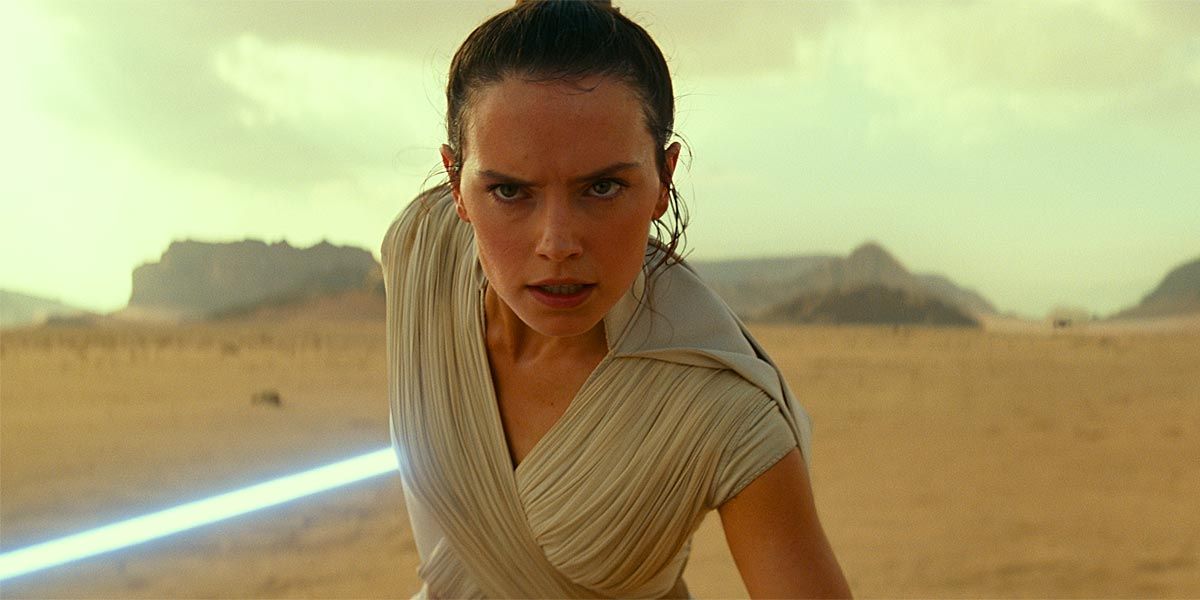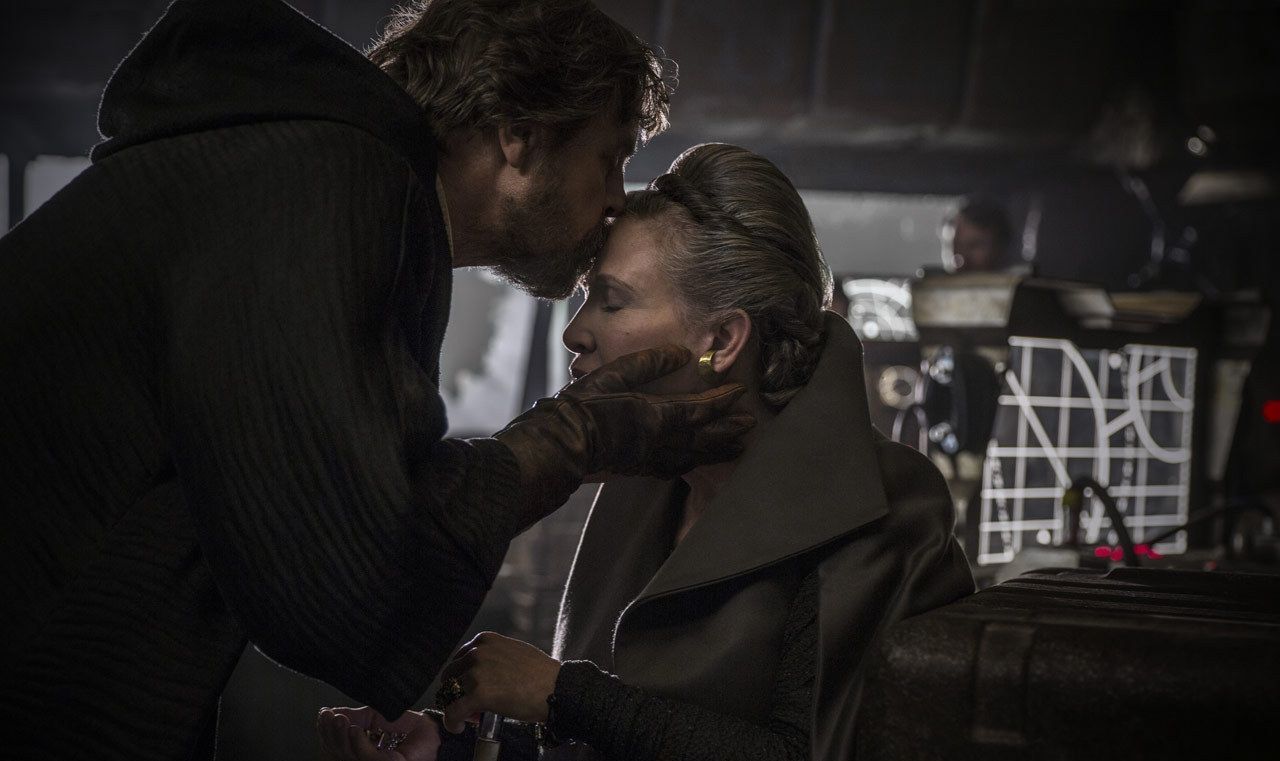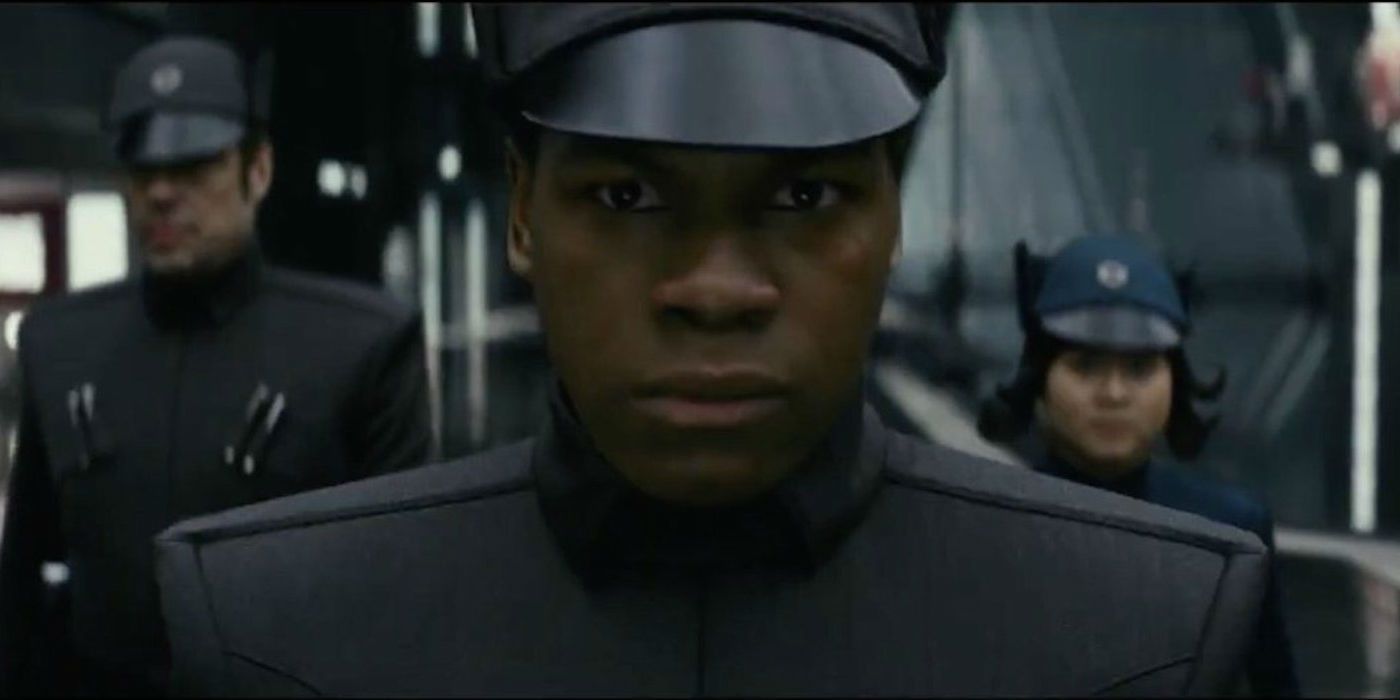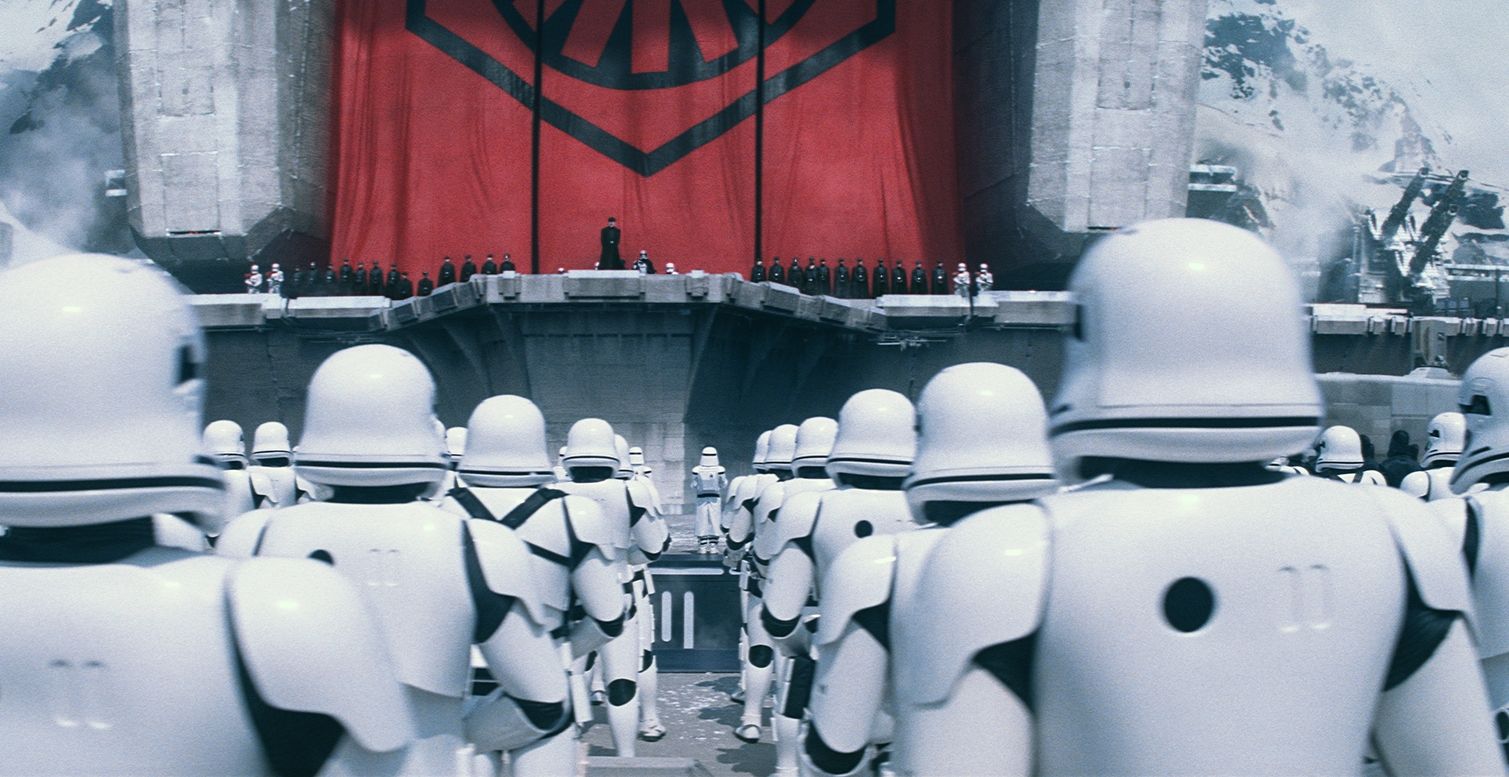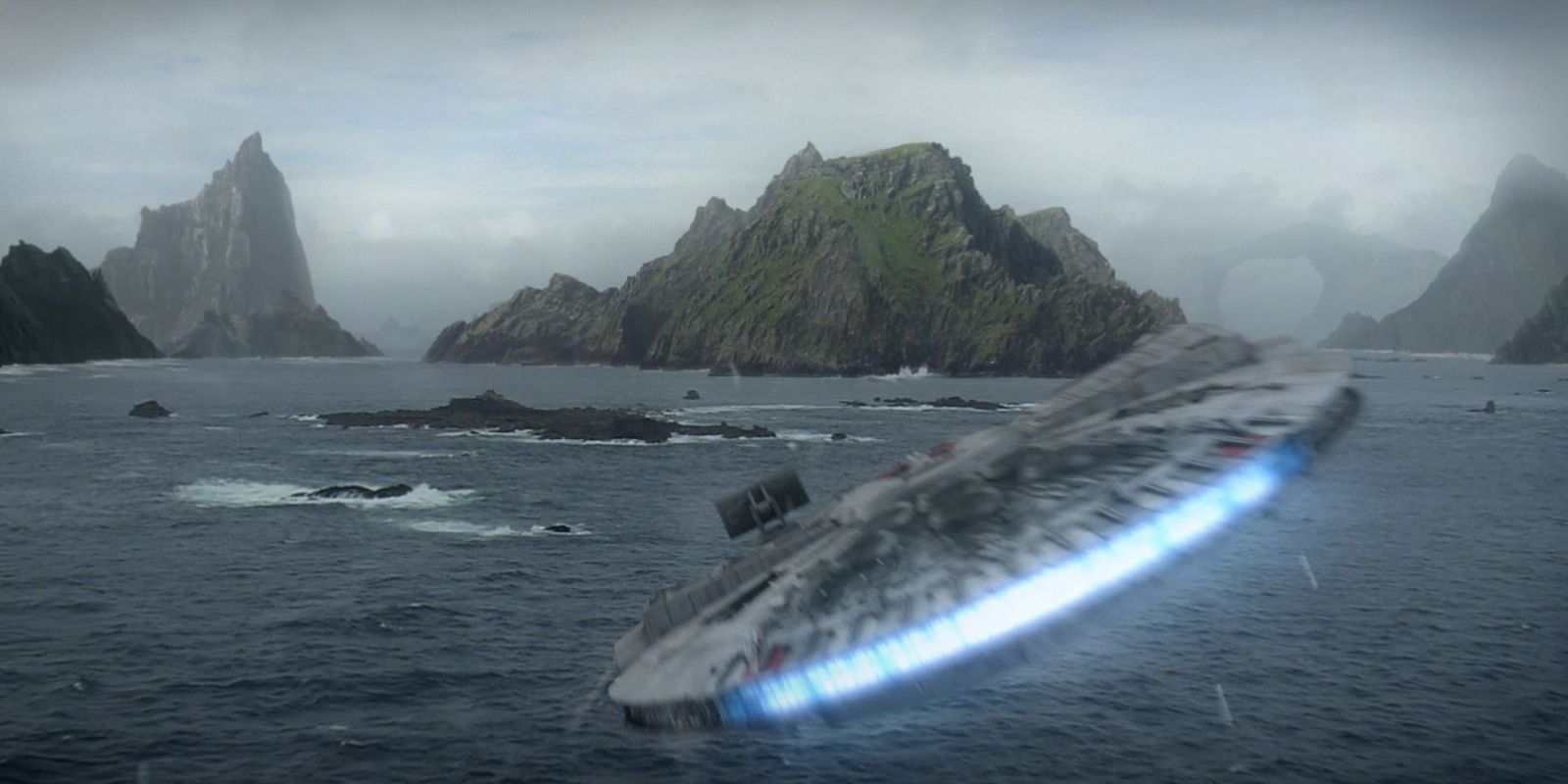WARNING: The following article contains spoilers for Star Wars: The Rise of Skywalker, in theaters now.
Now that the Star Wars sequel trilogy is over, we can finally take a step back and ask: what did we really get out of Disney's (divisive) sendoff to the main series of films? To answer this question, let's focus exclusively on the Skywalker saga films, putting aside things like Rogue One, Solo, Jedi: Fallen Order and The Mandalorian as supplemental material, in the same way that Clone Wars and Rebels are.
Many might dismiss the films as just "sequels" without any of the material value that the original trilogy had. However, whether planned from the start or evolved as they went, the sequel trilogy of films has changed Star Wars forever and, arguably, enriched the universe in a way that ultimately opens up the saga to more universe-expanding stories in the same way the prequels did.
A FITTING EPILOGUE FOR OLD HEROES
Many fans were upset that the sequel trilogy "ruined" the Happily Ever After our heroes earned after Return of the Jedi. And indeed, while they did experience a peace that lasted for decades, ultimately, toward the end of Luke, Han and Leia's lives, things took a bleak turn. Han went back to smuggling, then died by his son's own hand, leaving Leia to use the rest of her energy to save him; while Luke also died aiding his sister. In fact, all of the non-Droid Legacy players died, save for Chewie, who, ironically, is the only one of the original team to die on-page in the original Star Wars Legends canon.
However, as well as doing a lot to service the development of a new world, the sequel trilogy also did a great deal to develop the final chapters of these Legacy characters' lives. The Skywalker legacy specifically endured in both Ben Solo/Kylo Ren and Rey. However, unlike Obi-Wan Kenobi and Yoda, who took a very passive approach to how things went in the original trilogy following their failure, we see the old guard taking a highly proactive approach in stopping the First Order, especially with Leia, who not only organizes an entire Resistance independent of the New Republic but also trains a new generation of Jedi when Luke could not.
We also see where the Skywalker (and Solo) line ends, with Kylo Ren performing one important good deed that keeps the Skywalker legacy alive beyond its actual termination in Rey, proving that, ultimately, that's always the inevitable destiny of a bloodline designed to bring balance to the Force.
GREATER MORAL NUANCE
One of the key themes of the sequel trilogy is that of moral nuance, something Star Wars has, up until this point offered little in the way of. Finn is a Stormtrooper subjected to years of programming. Rey is the descendant of one of the most evil men in history. Ben Solo had love and support from good people. None of them turned out the way you'd expect.
The original trilogy offered a very black and white view of morality, save for a few heel-face-turns: Vader turns good at the end, but, until then, he's a force of tragic villainy while Han Solo was a self-centered scoundrel who quickly becomes a Rebellion war hero. The prequels offered the building blocks of nuance, with the Jedi being exposed as highly problematic figures and the Separatists being motivated by real flaws in the Republic, but it failed to really dig into these ideas in the films proper.
The sequel trilogy, however, goes all-in on presenting morality as a messy and complicated thing. Ben feels compelled to join the light, but has to force himself to be dark due because of a traumatizing childhood and dark family heritage. Rey descends to the dark side of the First Jedi Temple on Ahch-To immediately but leaves feeling unfulfilled by the answers the darkness has to offer. Poe, one of the most heroic members of the Resistance, started off as a spice trader, and sees little problem turning to known criminals for help.
The films also re-evaluate heroic actions taken in the past. The Jedi are flawed and Luke, who is flawed as well, feels the best course of action is to destroy these institutions that failed him and others so badly. He's ultimately wrong, as The Last Jedi proves, but there is enough truth to what he says to see where he's coming from.
Even then, good things happen because of bad people. The Resistance gets a lot of their weapons thanks to affluent people who also sell weapons to the First Order. Characters like Hux and DJ sway allegiances over pettiness or greed. The same is true, vice versa: Everything that goes wrong in The Last Jedi happens because good people made a mistake, resulting in other people needing to pay the consequences. This level of nuance on every level was mostly unexplored in the series before this trilogy.
THE CYCLE OF WAR
The cyclical nature of war was truly illustrated in this film. In the real world, human history only proves that peace is hardly ever permanent; as one war ends, another is only ever around the corner. from WWI to WWII to the Cold War, and on and on.
The heroes may have won last time, but their victory only sets the groundwork for more war. The First Order is a direct result of the Empire's fall in the original trilogy. To continue with the real-world parallels, the First Order clearly exists as Neo-Nazis to the Empire's Nazis.
Furthermore, while many of the members of the First Order are simply inspired by prior generations (the Stormtroopers, Kylo Ren, Hux, Starkiller Base), many aspects are direct holdovers from the prior generation (General Pryde, Palpatine), which confirms two key points: that evil always endures and inspires more evil. All of this opens up Star Wars to a new era of history begging to be expanded upon.
THE FORCE IS FOREVER CHANGED
Beyond anything else, the most important thing the sequel trilogy contributed to Star Wars was this: we never really understood the Force in prior films. Without the Jedi or Sith to manipulate the Force as extensively as they had been doing, the Force gets murkier. We see items that appear to be innately strong with the Force, as seen with the Skywalker family lightsaber. We see the generations of Jedi speaking through to Rey, choosing her as a champion of the Light.
The earlier films presented the Force as a weapon to be used with only Yoda offering a more balanced interpretation. The sequel trilogy sides with that interpretation and expand upon it.
In these films, we learn that "balance" means and that both the Jedi and Sith had only a narrow understanding of the Force. We see the origins of the Jedi, and how the First Jedi Temple was built upon a place that is in balance with all of the Force, not purely light or dark. When Rey enters the darkness, we see it exploit her fears without ever giving answers, indicating that the Dark side isn't "evil" as much as it is true fear and obsession without answers.
On top of that, we also see, once again, that material bonds of love and affection are not to be feared or shunned. The Jedi dispensed with anything that can lead to the dark side but, ultimately, as we saw in the prequels and as Luke comes to realize, that fear is misguided. This is best represented by Ben and Rey, divided between the light and dark, using both in tandem. The two are connected, like yin and yang, due to how they balance each other out, showing that light and dark are both needed for wholeness. The end of The Rise of Skywalker eliminates all the people who saw one as superior to the other, leaving the slate open. At the end of The Last Jedi, we're also left with several individuals who are strong in the Force and are unrelated to any noble bloodlines, such as Finn.
The Force awakens in the sequel trilogy in ways many fans deemed unnatural. These fans missed the point.
Directed and co-written by J.J. Abrams, Star Wars: The Rise of Skywalker stars Daisy Ridley, Adam Driver, John Boyega, Oscar Isaac, Lupita Nyong’o, Domhnall Gleeson, Kelly Marie Tran, Joonas Suotamo, Billie Lourd, Keri Russell, Anthony Daniels, Mark Hamill, Billy Dee Williams and Carrie Fisher, with Naomi Ackie and Richard E. Grant. The film is in theaters now.

